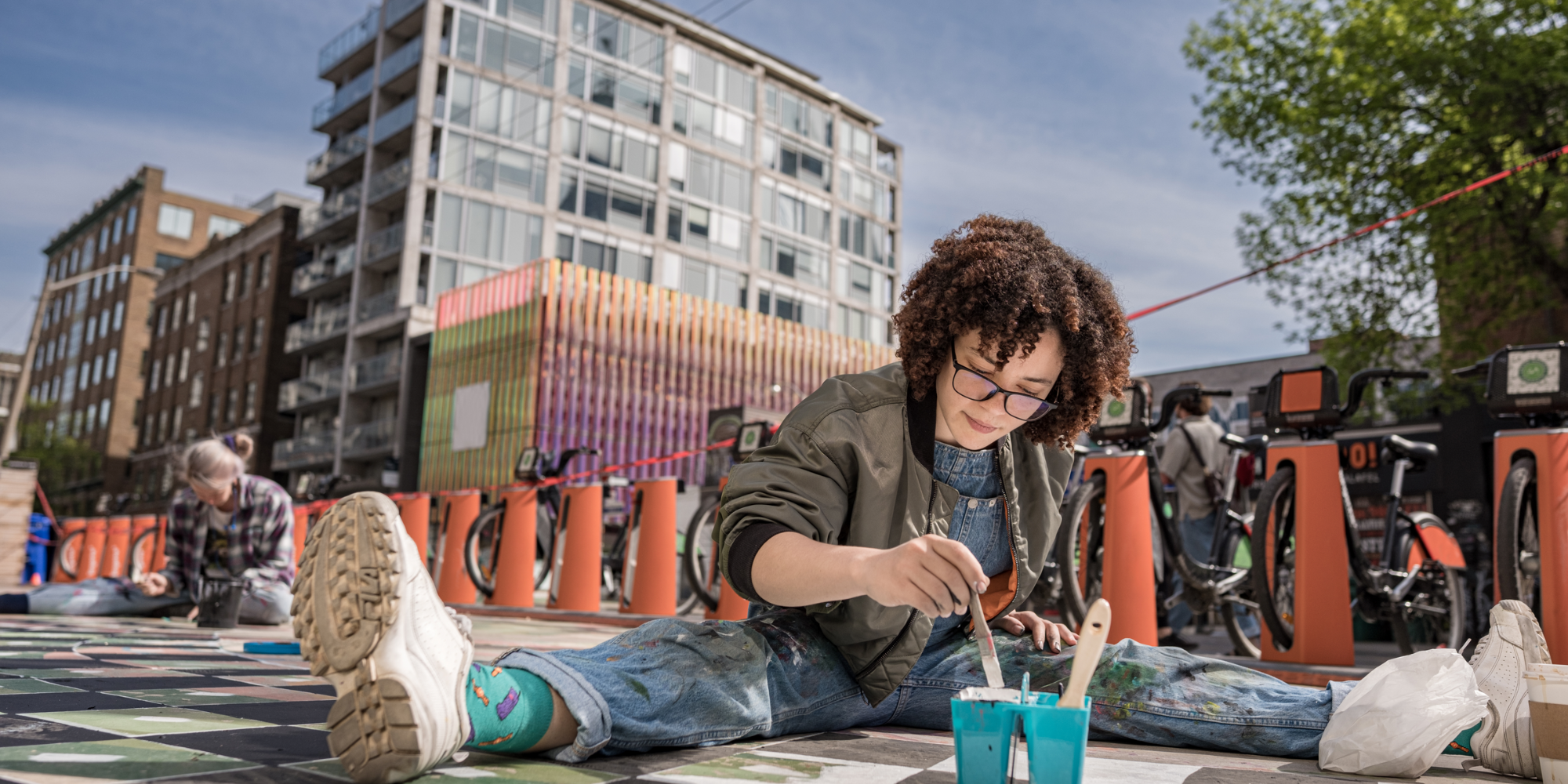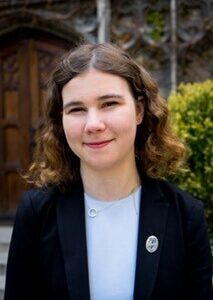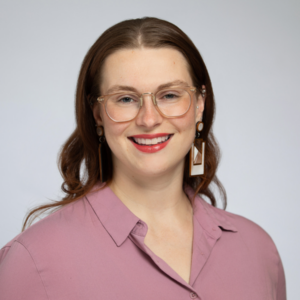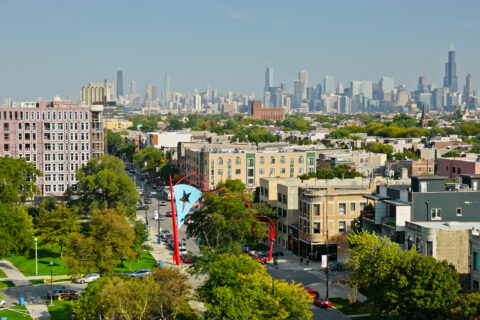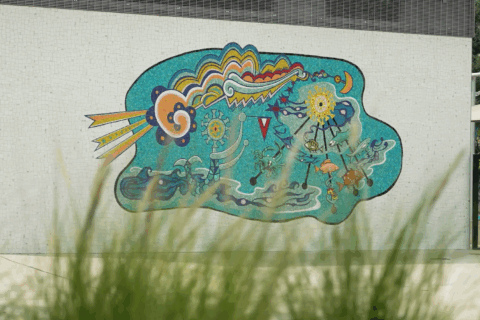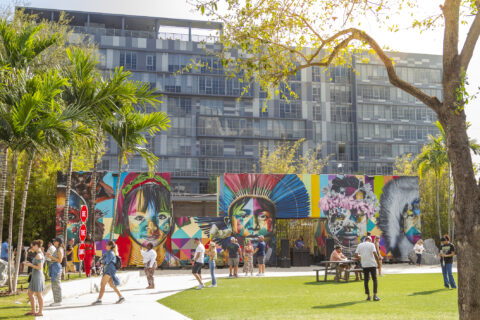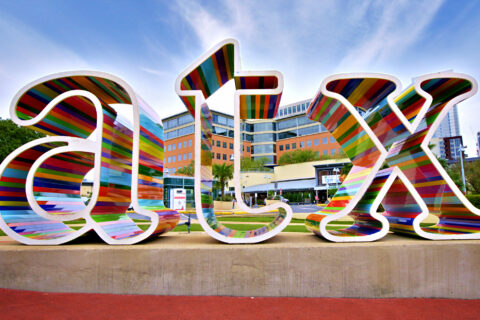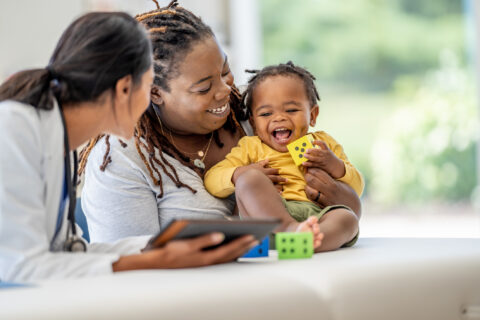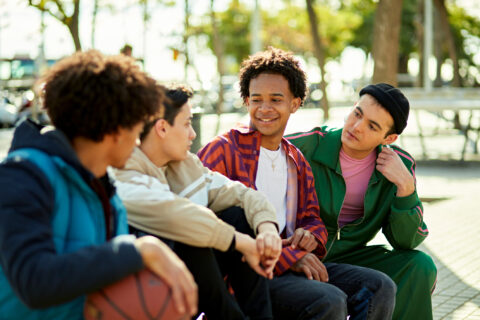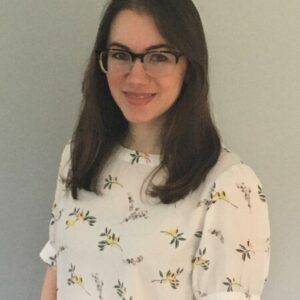Arts education can be a powerful tool for youth and community development. By using art as a vehicle, cities have been able to encourage social connection, incorporate youth voices into community-wide conversations, and help young people develop their identities.
A new piece commissioned by The Wallace Foundation, The Connected Arts Learning Framework: An Expanded View of the Purposes and Possibilities for Arts Learning, provides a guidebook for cities to utilize as they consider how to leverage the power of the arts in their own communities. The Connected Arts Learning Framework is a way in which cities can conceptualize arts programming to further community development. One of its many recommendations is using the arts as a lever to help youth explore social justice issues and advocate for change.
The City of Gainesville, FL is doing just this. One Nation One Project GNV is leveraging the power of arts and culture to better understand which activities are most interesting and impactful from the youth perspective. The initiative aims to gain a deeper understanding of gun violence, safety, mental well-being and community from the youth most affected by these challenges. This work focuses on multisector collaborations between government, mental health professionals, artists, community agencies, education, and law enforcement, all guided by a Youth Steering Committee. To ensure long-term effectiveness, ONOP GNV is using data collected from engaging the community in art-based events, informing key stakeholders and the community of the outcomes, and fostering innovative methods to move this work forward in a youth-centered way. This project was developed as part of NLC’s Improving Community Health and Resilience through the Arts technical assistance cohort. The National League of Cities (NLC) Institute for Youth, Education, and Families (YEF Institute), in partnership with One Nation/One Project (ONOP) is working with municipal leadership, community health leaders and safety net providers, local artists, and the communities hardest hit by the pandemic to achieve these goals
As cities seek to incorporate arts programming into their communities, the Connected Arts Learning Framework and the City of Gainesville’s work showcase a few of the benefits of art being used as a tool for community development:
- Arts Programming Can Elevate Youth Voice – Cities can use art to engage young people in discussions on social justice. The creativity of arts programming can empower youth to “think critically about the institutions within which they operate, create change in their communities, and call attention to structures of power.” As youth are engaging with difficult topics in non-traditional ways, arts education can also give them space to share more of their perspectives than might be captured through traditional means. By showcasing youth art or carving out dedicated space for their representation in community-wide conversations, cities can ensure young people’s perspectives are incorporated into these spaces. This is especially important if the arts are being used as a vehicle to tackle a social issue affecting youth specifically. By incorporating a Youth Steering Committee into ONOP GNV, Gainesville has been able to pinpoint the violence prevention initiatives youth identify as being most impactful for them.
- Arts Programming Can Build and Strengthen Community Relationships – Arts programming can be a powerful way to build connections between community members and reduce silos among organizations. In addition to providing opportunities for youth to find mentors, participation in arts programming can build relationships between individuals with similar interests, even if those interests are not related to art. These relationships can lead to further conversation and organizing around social issues. Gainesville’s Youth Steering Committee has helped youth participants develop relationships with others who are passionate about violence prevention as well as find mentors among community members and city officials.
- Arts Programming Can Expose Youth to Further Opportunities – Participating in arts programming can expose young people to a range of new opportunities, including those outside of the art world. The Connected Arts Learning Framework highlights how exploring their interests through art can help young people develop an “occupational identity;” a sense of belonging within their communities and a clear idea of how they want to harness their skillsets to pursue their interests. Once this is developed, arts education can help connect youth to further opportunities, people, and programs. In Gainesville, by exploring violence prevention through art, youth are exposed to a host of different opportunities in the field that could extend far beyond their participation in the specific arts program.
Cities looking to incorporate art into their own practices and policies can:
- Fund arts programs for youth afterschool and during the summer using pandemic relief funds or city general funds.
- Employ artists in city government to support the integration of art into policymaking.
- Map existing arts programs and organizations within the community. Utilize the map to identify areas with unmet needs and places where existing resources can be leveraged.
- Use the Connected Arts Learning Framework as a guide to analyze existing arts programs and identify opportunities for improvement.
- Empower city staff to think creatively about how to incorporate art into existing city programs and services. Provide flexible, cross-departmental funding.
For more examples of arts education being used for community and youth development, read The Connected Arts Learning Framework. For help incorporating the arts into your cities’ programs and practices, reach out to gempler@nlc.org or expandedlearning@nlc.org.
